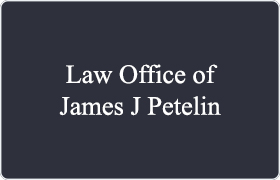Homewood DUI-DWI Lawyer, California
Sponsored Law Firm
-
 x
x

Click For More Info:
-
Law Office of James J Petelin
1550 Humboldt Road, Suite 4 Chico, CA 95928» view mapDivorce & Family Law Effective, Client-Focused Representation
James Petelin is a practicing attorney in the state of California who focuses on Family Law.
800-943-9701
Not enough matches for Homewood DUI-DWI lawyer.
Below are all Homewood Criminal lawyers.
John Gregory Downing
Real Estate, Estate, Family Law, DUI-DWI
Status: In Good Standing Licensed: 33 Years
Craig Bradford Close
Accident & Injury, Corporate, Estate, DUI-DWI, Real Estate
Status: In Good Standing Licensed: 47 Years
Jill Haley Penwarden
Litigation, Immigration, DUI-DWI, Business
Status: In Good Standing Licensed: 29 Years
Robert Lawrence Woelfel
DUI-DWI, Criminal, Securities Fraud
Status: In Good Standing Licensed: 17 Years
W Scott Debie
Construction, DUI-DWI, Business, Medical Malpractice
Status: Inactive Licensed: 45 Years
 James Petelin Chico, CA
James Petelin Chico, CA AboutLaw Office of James J Petelin
AboutLaw Office of James J Petelin Practice AreasExpertise
Practice AreasExpertise
